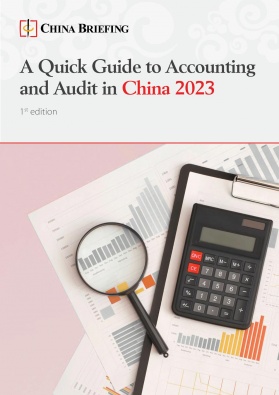China’s Central Economic Work Conference: Policymakers Set Sights on Growth in 2023
As set out in the Central Economic Work Conference, China will be more focused on economic growth in 2023 than ever, with expected policies to expand domestic consumption, attract and utilize foreign capital, stabilize the property market, and revamp the tech sector.
China’s economic agenda for 2023 will be focused on one thing: growth.
That is the key takeaway from the Central Economic Work Conference (CEWC), an annual meeting of China’s top leadership held in Beijing from December 15 to 16, 2022.
President Xi Jinping, Premier Li Keqiang, China’s number-two, and the Premier-to-be Li Qiang, all gave speeches at the meeting, in which they laid out the economic policy agenda for the following year.
The new policy agenda comes after China took decisive steps in late November and December to lift the majority of its long-standing COVID-19 restrictions, that had hindered growth in 2022.
As the country transitions from its zero-COVID policy to a less restricted business and living environment, the government is hoping to return to the high-growth environment that China fostered before the pandemic, and also briefly during the post-pandemic recovery in 2021.
WEBINAR REBROADCAST – The End of China’s Zero-Covid Policy: What’s Next?
February 7, 2023 | 9:00 AM CET / 3:00 PM Vietnam / 4:00 PM China
Towards the end of 2022, China’s government made a complete and abrupt reversal of all Covid-prevention measures that have been in effect since 2020. By January 8, 2023, all travel restrictions are to be lifted enabling international tourism, family reunification, and business travel. While great news for most businesses, it may take some time for things to return to normal.
Join us for a rebroadcast of a panel discussion on China’s current Covid-19 situation. Our panelist experts will comment on the state of restrictions – or lack thereof – the reality on the ground for businesses, and speculate on what we will see with China’s reopening in 2023.
This webinar is FREE of charge. This event is part of our Reforesting Asia 2022 Eco Initiative. We’re raising awareness for environmental protection and donating trees to reforestation projects in Asia for attendees at this event. Register and attend to help us reforest Asia!
How will China stimulate growth in 2023?
Expanding domestic consumption
Domestic consumption has fallen considerably over the course of 2022. Retail sales were down 5.9 percent year-on-year in November 2022, and consumption per capita had slowed to just 1.5 percent year-on-year growth in the third quarter of 2022.
Boosting consumption will therefore be an important aspect of boosting economic growth. While the lifting of COVID-19 restrictions will go a long way to encourage more spending, the CEWC also outlined a variety of measures that the government will implement to expand consumption in 2023.
One method is to increase the income of urban and rural residents and provide support for people to spend on things such as housing improvement, new energy vehicles (NEVs), and elderly care services.
It also proposes using government incentives to increase investment throughout the whole of society, increase financing support for major projects, and encourage more private capital to participate in the construction of major national projects.
The upshot of these measures appears to be that the government will seek to restore consumer confidence by shoring up funding and support for businesses, rather than by handing out stimulus cheques to individuals.
Attracting and utilizing foreign capital
The CEWC highlighted the need for increasing foreign trade and investment cooperation in the new year to stimulate growth. The proposed mechanisms to encourage a better environment for foreign investment and trade include:
- Expanding market access and further opening the modern services industry.
- Providing equal treatment for foreign-funded enterprises and ensuring that foreign-funded enterprises have equal opportunities to participate in government procurement, bidding, and formulation of industry standards.
- Increasing the protection of intellectual property rights and the legitimate rights and interests of foreign investment.
- Promoting the construction of landmark projects with foreign capital.
The CEWC also mentioned promoting the joining of multilateral economic and trade agreements, such as the Comprehensive and Progressive Agreement for Trans-Pacific Partnership (CPTPP) and the Digital Economic Partnership Agreement (DEPA). China formally applied to join these agreements in the fall of 2021, just a few weeks apart, despite certain legislative hurdles for it to be accepted. China’s accession to the agreements is still under negotiation by member countries. In order to promote its bid, the CEWC states that China will “actively compare relevant rules, regulations, management, and standards, and deepen domestic reforms in related fields”. This suggests China may make some changes to its domestic legislation in order to become compliant with the requirements of the agreements, such as its laws on cross-border data transfer.
Finally, the CEWC readout stated that it is necessary to provide foreign businesspeople with “the greatest degree of convenience” to travel to China and engage in trade and investment negotiations. This suggests a formal policy change to remove quarantine requirements for incoming travelers.
Stabilizing the property market
The property market has been one of the major headwinds to China’s economic growth in 2022. The market has been in crisis ever since regulations to reign in property developers’ debt were introduced, leading to credit defaults by some of China’s largest companies.
In the summer of 2022, the property sector came under additional fire as thousands of would-be homeowners threatened to refuse to pay their mortgages to developers that failed to finish homes that they had sold under a pre-paid scheme.
The CEWC readout addresses the risk that the property market poses for the country’s economy in 2023, stating that “it is necessary to ensure the stable development of the real estate market”. It also calls for “effectively preventing and diffusing major economic and financial risks” and “ensuring the delivery of buildings”, in reference to the delivery of pre-paid homes.
However, the CEWC readout repeated the mantra that “houses are for living in, not for speculation”, suggesting that the government will continue to seek to deleverage the property market in 2023. Instead, the readout states that, in order to mitigate the risks posed by the property market, the country will implement measures to “meet the reasonable financing needs” of property developers, promote industrial restructuring and mergers, and improve assets and liabilities.
In addition, it calls for implementing policies to address housing needs, in particular for younger people and people who have moved to new cities, which includes the construction of long-term rental housing.
Monetary and fiscal policy
Over the past few years, China has adhered to what the government has called a “prudent” monetary policy and a “proactive” fiscal policy. A “prudent” monetary policy means using highly targeted monetary tools rather than flooding the market with liquidity. This may include tools, such as relending and policy loans, to provide support for specific industries and groups of people, as well as broader tools to increase liquidity through the banking system.
A “proactive” fiscal policy, meanwhile, has meant ensuring support for various stakeholders, but without providing direct fiscal stimulus. In the pandemic years, the government has implemented measures such as tac rebates and fee cuts to assist struggling market entities, while stimulating investment by expanding the issuance of special purpose bonds (SPBs), the main tool for local governments to invest in local infrastructure projects.
The CEWC readout repeats both the terms “prudent” monetary policy and “proactive” fiscal policy, suggesting that the government will continue to implement these types of measures to prop up the economy in 2023.
With regard to fiscal policy, the CEWC readout mentions many of the fiscal tools that have already been deployed over the past couple of years: issuing SPBs, increasing central government transfer payments to local governments, and interest discounts to ensure that local government debt is under control while providing enough to support economic development.
Meanwhile, with regard to monetary policy, the CEWC readout states that the government should maintain “reasonable and sufficient liquidity” and keep the growth rate of money supply and social financing at the same level as the nominal economic growth rate. It also calls for guiding financial institutions to increase support for small and micro enterprises, technological innovation, green development, and other fields.
Tech sector regulation
The CEWC marks a potential turning point for the tech sector, which has undergone a series of regulatory crackdowns over the past two years that have hampered growth. These included investigations and punishments against major tech companies for violations of the country’s anti-monopoly and anti-fair competition laws, to tightening of data privacy and security regulations.
The CEWC states that science and technology policy should “focus on self-reliance and self-improvement”, suggesting that industry oversight may be less heavy-handed in the future.
It also highlighted the role of the technology and digital industries in cultivating talent, stating that it is necessary to “support platform companies in leading development and creating jobs”. Separately, it calls for improving the industry’s ability to independently train talent and attract more high-end talent to the sector.
What does the CEWC mean for the economy in 2023?
It is important to note that the CEWC does not constitute specific economic policies; rather, the meeting sets the tone for the types of policies that will be released in the coming year. This year, the CEWC set a pro-economic growth agenda, which means we expect the various government departments to release policies to stimulate growth in their respective fields.
More concrete economic policy will be formulated in the coming months and will most likely be announced during the 2023 Two Sessions, which is normally held in the beginning of March.
The extent to which China will focus on growth while placing other economic goals on the back burner remains to be seen. It is highly unlikely that the government will allow unhampered industry growth like that seen in over the last two decades. While it may loosen control over some industries to enable more freedom to move, significant deregulation is unlikely.
About Us
China Briefing is written and produced by Dezan Shira & Associates. The practice assists foreign investors into China and has done so since 1992 through offices in Beijing, Tianjin, Dalian, Qingdao, Shanghai, Hangzhou, Ningbo, Suzhou, Guangzhou, Dongguan, Zhongshan, Shenzhen, and Hong Kong. Please contact the firm for assistance in China at china@dezshira.com.
Dezan Shira & Associates has offices in Vietnam, Indonesia, Singapore, United States, Germany, Italy, India, and Russia, in addition to our trade research facilities along the Belt & Road Initiative. We also have partner firms assisting foreign investors in The Philippines, Malaysia, Thailand, Bangladesh.
- Previous Article Mainland China and Hong Kong to Expand their Stock Connect Scheme
- Next Article China to Remove Quarantine for Inbound Travelers Starting January 8, 2023








